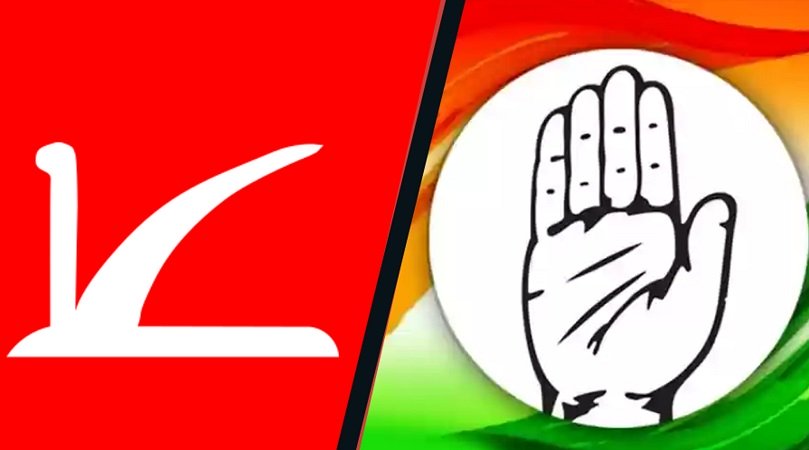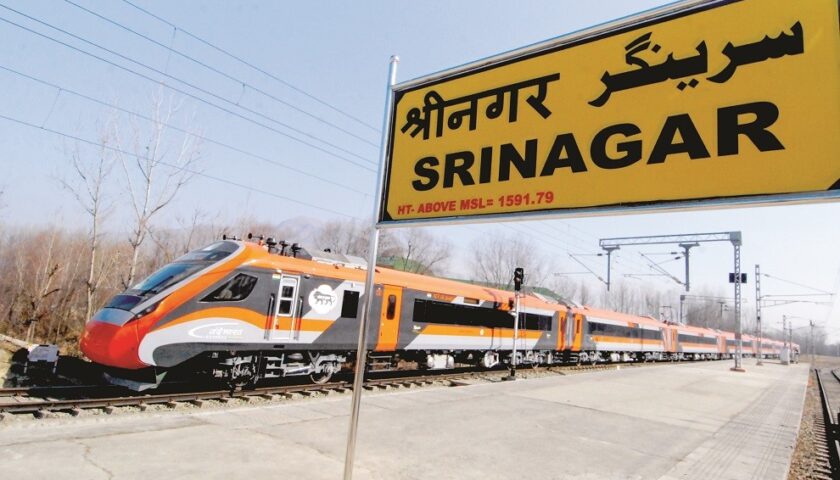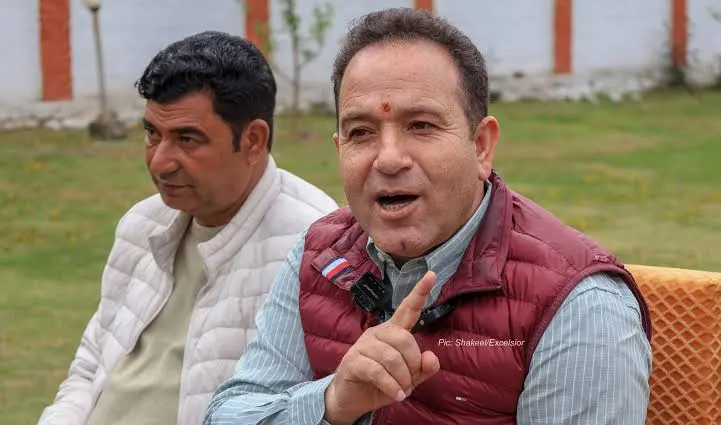A Test Beyond Two Seats
By: Javid Amin | 21 October 2025
As Jammu and Kashmir heads into the crucial Budgam and Nagrota assembly bypolls, the political atmosphere has grown increasingly turbulent.
What was expected to be a routine mid-term exercise has instead turned into a showdown that exposes widening cracks within the ruling National Conference (NC) and its uneasy alliance with the Congress.
Both contests—Budgam in central Kashmir and Nagrota in Jammu—carry political and symbolic weight far beyond their boundaries. They represent the first real test of coalition discipline, governance credibility, and the public’s faith in the post-2024 Omar Abdullah government.
The stakes are high, not only for the NC but for the entire opposition alliance in J&K, as the BJP looks to exploit every sign of division.
Internal Discord Rocks the National Conference
The National Conference, long known for its centralized leadership and disciplined cadre, is facing an unusual public display of internal dissent.
The most visible sign of this fissure comes from Aga Syed Ruhullah Mehdi, a three-time MLA from Budgam and one of the party’s most respected voices.
Ruhullah has openly refused to campaign for the NC’s official candidate, Aga Syed Mehmood, in the Budgam bypoll — a decision that has both shocked and embarrassed the party leadership.
“A Matter of Principle, Not Politics”
Ruhullah’s silence in the campaign is not just personal; it’s deeply political.
Those close to him say he was sidelined during the candidate selection process, despite his strong grassroots base in Budgam. The NC’s choice of Mehmood—a former minister and another influential Shia leader—has been interpreted as an attempt to counter Ruhullah’s growing independent stature.
A senior NC functionary from Budgam, requesting anonymity, revealed:
“Ruhullah Sahib was not even consulted. The decision came straight from the Chief Minister’s office. Many workers feel alienated. The selection reflects power politics, not people’s choice.”
The rift has laid bare the growing tension between Omar Abdullah’s leadership and regional heavyweights like Ruhullah, who represent both religious and generational constituencies that the party cannot afford to lose.
The Legacy and the Rift
Budgam, often called the “heart of central Kashmir politics”, has been a National Conference stronghold for decades.
The constituency has produced towering figures within the Aga lineage — a respected Shia clerical family whose members have alternately represented the NC and PDP over the years.
Aga Ruhullah’s father, the late Aga Syed Mehdi, was a revered leader who helped consolidate the NC’s Shia base during the 1990s.
Ruhullah himself, educated, articulate, and principled, carried that legacy forward — until he began challenging the party’s decisions on policy and ethics, especially since the abrogation of Article 370.
By 2024, as the NC returned to power in coalition with the Congress, Ruhullah had emerged as a moral voice within mainstream Kashmiri politics, criticizing:
-
Arbitrary detentions under PSA,
-
Delays in restoring full statehood,
-
And the slow implementation of employment and civil liberty reforms.
His refusal to join the Budgam campaign for Mehmood is thus seen not merely as a rebellion, but as a protest against top-down decision-making.
Chief Minister Omar Abdullah’s Tightrope
For Chief Minister Omar Abdullah, the bypolls come at a time when his administration is struggling to maintain coalition balance and public confidence.
His decision to vacate the Budgam seat after the 2024 elections—choosing instead to retain his ancestral Ganderbal constituency—was meant as a strategic move to promote younger leadership.
But that decision has backfired.
The resulting bypoll has turned Budgam into a flashpoint of factional politics, with the NC appearing divided between loyalty to the CM and allegiance to local icons like Ruhullah.
Political observers suggest Omar faces a two-front challenge:
-
Managing dissent within NC ranks, particularly among younger reformist voices.
-
Preserving the coalition with Congress, which has begun showing signs of fatigue and mistrust.
NC–Congress Alliance: Strained but Surviving
The NC–Congress coalition, forged after the 2024 assembly elections to keep the BJP out of power, was always a marriage of necessity rather than conviction.
Though both parties share a history of cooperation, the alliance has been marred by policy disagreements, seat-sharing conflicts, and personality clashes.
Congress Skips Nagrota Contest
The latest flashpoint is Nagrota, a key constituency in Jammu.
Despite NC offering the seat, the Congress has chosen to opt out, saying it wants to avoid splitting anti-BJP votes and focus on “a larger goal of secular unity.”
However, insiders admit there’s more friction beneath the surface.
A senior Congress strategist, speaking off the record, said:
“The NC gave us no assurance of safe seats in the recent Rajya Sabha elections. Our candidates were left vulnerable. Now, suddenly, they offer Nagrota when it’s politically inconvenient. It’s difficult to trust such tactical generosity.”
This decision exposes the fault lines in coordination between the two allies.
Congress leaders feel they are bearing the cost of NC’s unilateral decisions, while NC leaders privately accuse Congress of underperforming electorally and failing to energize the Jammu region.
Rajya Sabha Fallout: The Wounds Still Fresh
The current mistrust dates back to the Rajya Sabha elections earlier this year, when Congress demanded a “safe seat” from the coalition quota — a request that NC reportedly denied.
The episode left senior Congress leaders deeply disillusioned, especially after NC fielded candidates without full consultation.
Congress insiders argue that the move contradicted the “coalition spirit”, leaving them exposed to BJP’s aggressive campaign tactics.
Though the issue was temporarily buried under joint press appearances, the bitterness has resurfaced with the bypolls.
Political commentator Zafar Iqbal notes:
“The NC–Congress alliance was built on arithmetic, not chemistry. The bypolls are now testing that fragile arithmetic in real-time.”
The Mechanics of the Bypolls
The Election Commission of J&K has scheduled polling for November 11, with counting set for November 14.
-
Budgam: A triangular fight between NC’s Aga Syed Mehmood, PDP’s Aga Syed Muntazir Mehdi, and AAP’s Deeba Khan, whose “PSA ka badla vote se” campaign has attracted younger voters.
-
Nagrota: NC’s Devinder Rana faces BJP’s Anil Gupta, in what’s being billed as a mini referendum on Omar Abdullah’s governance in the Jammu region.
The outcome will have symbolic consequences:
-
A loss in Budgam would be read as a rejection of NC’s internal handling of dissent.
-
A loss in Nagrota could deepen doubts about the alliance’s ability to challenge BJP’s Jammu dominance.
BJP’s Strategic Patience
For the Bharatiya Janata Party, the bypolls present an opportunity to capitalize on the cracks within the opposition camp without overexposing itself politically.
While BJP leaders have refrained from direct attacks on Omar Abdullah, their rhetoric subtly positions the party as the only disciplined, unified political force in J&K.
Spokesperson Altaf Thakur remarked:
“When allies fight each other and leaders insult their own, people naturally turn to a party that stands for clarity and conviction.”
BJP strategists see Nagrota as fertile ground for consolidating support among urban voters and ex-servicemen, while in Budgam, their limited presence allows them to watch opposition fragmentation work in their favor.
Aga Family Divide: A Microcosm of Kashmiri Politics
Adding to the complexity of the Budgam contest is the Aga family dynamic — a political and clerical dynasty that has shaped Shia politics in Kashmir for decades.
Three “Aga” candidates are in the fray:
-
Aga Syed Mehmood (NC) – backed by the Chief Minister and the party establishment.
-
Aga Syed Muntazir Mehdi (PDP) – a reformist challenger appealing to youth and first-time voters.
-
Aga Syed Mohsin (BJP) – bringing a nationalist narrative into a community-driven contest.
The fragmentation within the Aga lineage mirrors the fragmentation within Kashmir’s Shia electorate, traditionally a NC stronghold but now divided along ideological lines.
It also underscores the NC’s failure to unify key constituencies at a time when the party can least afford disunity.
Coalition Politics and the Kashmir Paradox
The bypoll crisis has reignited a broader debate about coalition governance in Jammu and Kashmir — a region where political alliances often collapse under competing ambitions.
The Congress, though historically a national ally of NC, remains uncomfortable playing junior partner in a state where its cadre has eroded over the years.
Meanwhile, the NC, despite its dominance in the Valley, has failed to expand meaningfully into Jammu, relying on Congress for geographical balance.
This interdependence, analysts argue, is strategically necessary but politically suffocating.
Dr. Shuja Ahmad, a political science professor at Kashmir University, explains:
“The NC-Congress alliance survives because both need each other to keep BJP out. But every election reminds them that their interests are not naturally aligned. That contradiction keeps resurfacing.”
Voices from the Ground
In Budgam’s Chadoora market, conversations are dominated by frustration rather than ideology.
“We voted for NC thinking it would bring dignity and jobs. Instead, they’re fighting among themselves,” says Shabir Hussain, a shopkeeper.
“If Ruhullah Sahib doesn’t campaign, half the NC votes will disappear.”
In Nagrota, meanwhile, Congress workers feel sidelined:
“Our leadership is scared to contest. If we always avoid fights, how will we ever rebuild the party?” asks Rita Sharma, a booth-level Congress worker.
Such grassroots sentiments reflect the emotional fatigue of voters who expected stability after years of uncertainty but now see familiar infighting and blame games return.
Analysis: What the Bypolls Reveal
The Budgam and Nagrota bypolls are not just about who wins or loses; they are about who defines the political narrative in Jammu and Kashmir’s fragile democracy.
They expose three parallel realities:
-
A fragmented National Conference — struggling to accommodate dissenting voices like Ruhullah’s.
-
A disillusioned Congress — questioning its relevance within the alliance.
-
A watchful BJP — waiting to exploit the inevitable fallout.
Should NC win both seats, Omar Abdullah may regain the moral high ground and silence critics temporarily.
But if the party falters — especially in Budgam — it will reignite calls for internal reform and generational change.
The Road Ahead
As the November 11 polling day approaches, pressure is mounting on both the NC and Congress to project unity, however fragile.
Joint rallies are being planned, though insiders admit that coordination remains minimal.
Ruhullah’s role — or lack thereof — could decide the Budgam outcome. His symbolic silence has become a referendum on party integrity, not just leadership.
Meanwhile, the Congress high command is likely to reassess its long-term strategy in J&K after the bypolls, especially if the party’s organizational weakness in Jammu remains unaddressed.
Bottom-Line: A Coalition at Crossroads
The Jammu & Kashmir bypolls have done more than just set up two local contests — they’ve exposed the political fault lines running through the state’s ruling establishment.
Within the National Conference, dissent is no longer whispered; it’s visible, vocal, and ideologically charged.
Between NC and Congress, the partnership of necessity has turned into a balancing act of mistrust.
And as the BJP watches from the sidelines, the grand experiment of opposition unity in J&K stands at its most vulnerable juncture yet.
Whatever the outcome on November 14, one truth will remain clear:
In Jammu and Kashmir’s politics, unity without dialogue is a temporary truce — not peace.




